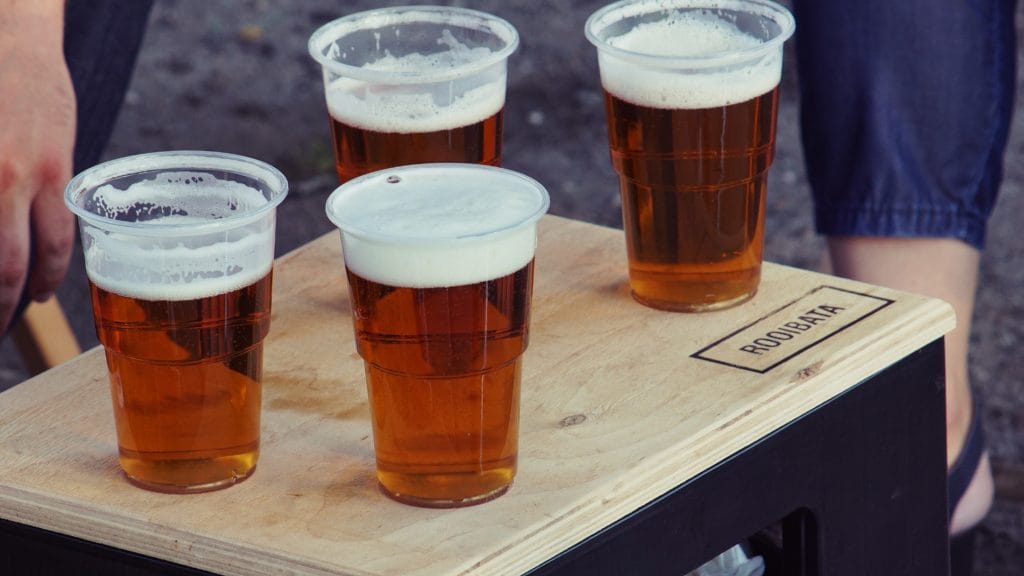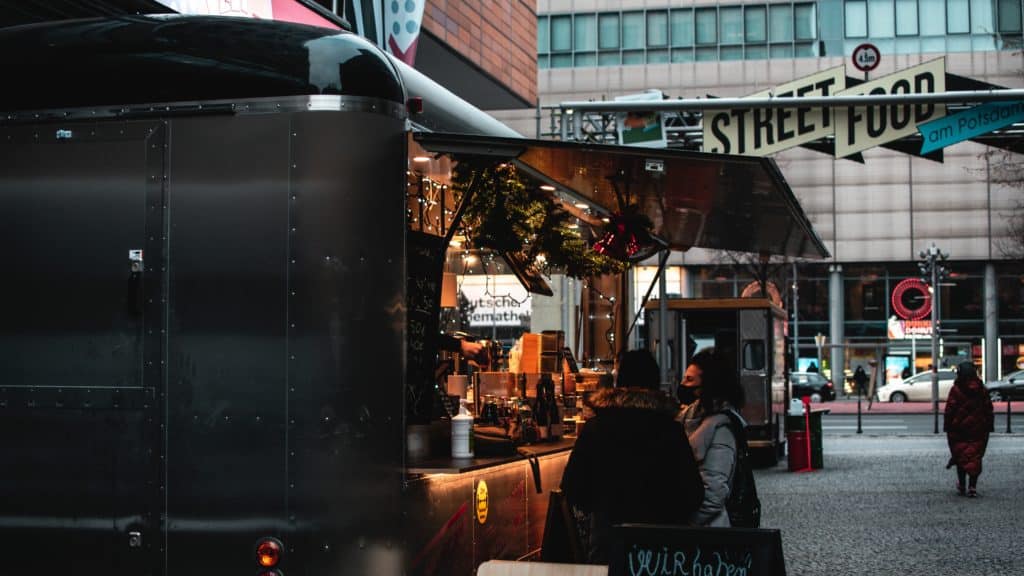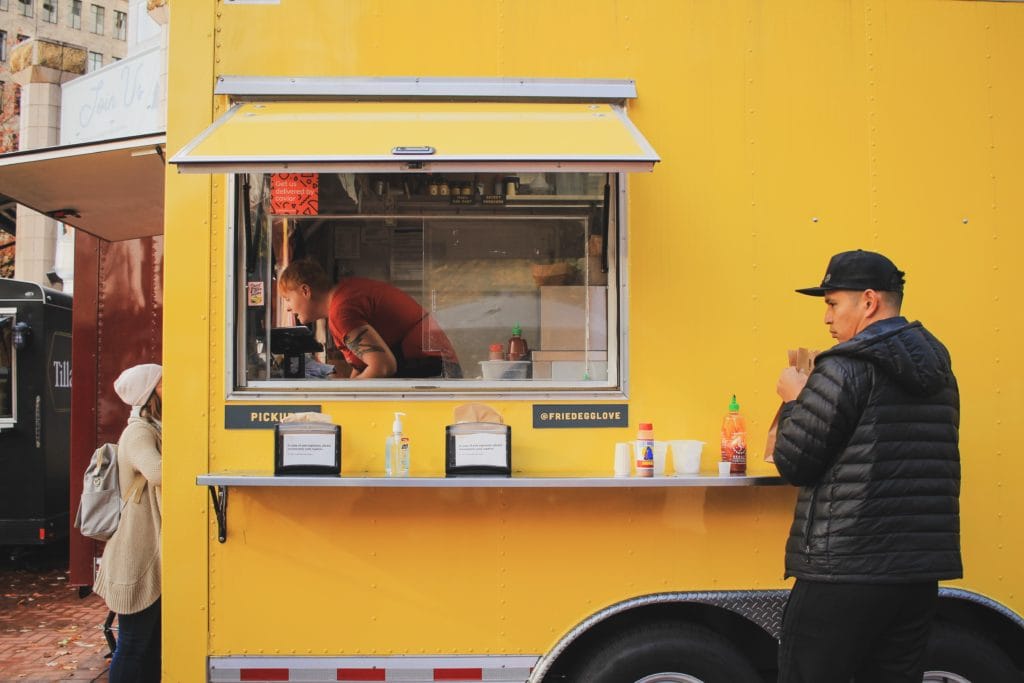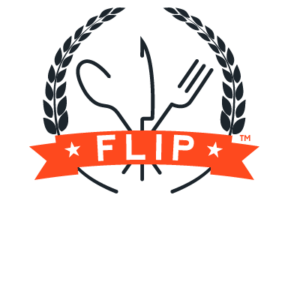Last Updated: 11/30/2023
Food trucks are storming the country. Serving everything from waffles to grilled cheese sandwiches and representing worldwide cuisine, food trucks provide delicious eats and treats. But can food trucks also sell alcohol, and is it worth the hassle?
Yes! While there are a few limitations to obtaining a liquor license for a food truck, food truck alcohol sales can be a worthwhile and lucrative business venture.
Benefits of Selling Alcohol on a Food Truck
Adding alcohol to your food truck service may sound daunting, but there are several great benefits to consider:
- Make Your Business More Competitive
- Build a National Brand
- Enjoy Franchise and Expansion Opportunities
- Pull In Additional Revenue
Make Your Business More Competitive
With the growing popularity of food trucks nationwide, being able to offer alcohol could be a deciding factor for potential customers. If people know they can order beer from you in addition to their food, they may choose your food truck over another that offers similar cuisine but can’t sell alcohol.
Build a National Brand
Mobile bars across the country are making a name for themselves. By selling alcohol from your food truck or creating a mobile bar, you separate yourself from the competition.
Part of your brand identity should be built around what differentiates you from other food trucks, and being able to sell alcohol could be one of those factors.
If you do decide to sell alcohol, make sure to promote this to your customers. For example, when posting pictures of your menu items on social media, include a bottle of beer or glass of wine in the shot. Because selling alcohol from your food truck is still a relatively new concept, you can make a name for yourself by leaning into this aspect of your business.
Franchise and Expansion Opportunities
Different cities and states have different rules and permits necessary to sell alcohol. Evaluating your costs and potential profits from an event or specific location can help you make the most out of your business.
Once you have established yourself in a specific area, it may be wise to expand your fleet by managing more trucks or franchising and purchasing the needed licenses for those areas you plan to operate rather than getting multiple liquor licenses for a single truck.
Increased Revenue Potential
Liquor margins are often higher than food product margins, which means you could increase your revenue quickly.
Many liquor licenses are tied to locations and each liquor license can be quite pricey, so you will have to evaluate your estimated ROI to determine whether selling liquor will be profitable in that location. Read more about the risks of liquor service.
How to Sell Liquor From Your Food Truck
In order to safely and legally serve alcoholic beverages from your food truck, you’ll need to complete these steps:
- Follow Your State’s Alcohol Serving Laws
- Obtain a Liquor License
- Get Liquor Liability Insurance

Follow Your State’s Alcohol Serving Laws
Liquor laws and regulations vary greatly from state to state, even from city to city. This can make obtaining a liquor license for a food truck difficult but also rewarding as you get to expand your business and cater to a larger demographic of customers. It is vital to look into these regulations before starting a liquor food truck.
Some states allow food trucks to sell alcohol from certain locations and may limit the type of alcohol to cocktails, beer, wine, or other drinks. It’s important to note that wine and beer alcohol requirements can differ from liquor and spirits requirements.
Since requirements differ from state to state, some states may even have umbrella licenses that cover all alcohol types.
It’s vital that you start by familiarizing yourself with your state’s requirements for serving alcohol to ensure your business plans adhere to local laws and regulations.
Obtain a Liquor License
When getting ready to sell alcohol from your food truck, make sure to budget for the expense of obtaining a liquor license.
You can obtain a liquor license that covers events, annually or short term. These licenses can often cost thousands of dollars and take up to several months to acquire.
If you are at multiple locations, you will need a license that provides coverage at each location.
To find out specifics about liquor licensing near you, visit your state’s Alcohol Beverage Control site to contact a local agent or the Tobacco Tax and Trade Bureau (TTB) to find state-specific liquor licenses.
How to Get a Liquor License
Here are five steps to obtain your food truck liquor license:
- Figure out what type of liquor license you need. The rules and regulations for food trucks that serve beer and wine over food trucks that serve harder spirits and mixed drinks are less strict and can be easier to obtain. It is important to note that if you plan on selling your liquor on-site at the event, you will need an on-site license; however, if you plan on selling liquor to be enjoyed at a later time and off premises, you will need an off-site liquor license.
- Contact your state liquor licensing authority. They will be able to give you up-to-date specifics about obtaining a food truck liquor license.
- Complete your liquor license application. This may take some time, and it may be a good idea to review it with legal counsel to ensure you understand everything required of your business.
- Complete a business plan that demonstrates how your business will operate with the liquor license and what type of revenue scale you expect to achieve.
- Supply the funds. A food truck liquor license can cost $3000 on average, so make sure to budget for that.

Get Liquor Liability Insurance
When you choose to sell alcohol, you open yourself up to many new risks that could financially hurt your business. Liquor liability insurance is designed to protect you from the cost of claims resulting from incidents such as:
- An intoxicated customer driving away from your food truck and causing an accident
- Two drunk customers getting into a fight after you serve them alcohol
- A customer damages the property of the venue where you’ve parked your food truck
Without coverage, you can be held responsible to pay for these claims completely out of pocket. A general liability policy does not cover liquor-related incidents either, so if you plan on selling alcohol from your food truck it’s crucial to have liquor liability insurance.
Having coverage from Food Liability Insurance Program (FLIP) can help mitigate, or even eliminate, the cost of liquor-related claims so you aren’t left paying for them on your own. With FLIP’s agent-recommended Platinum policy, you can conveniently bundle general liability and liquor liability coverage for $37.75 per month or $453 per year and ensure your business has the comprehensive coverage it needs.
Overcoming the Risks of Selling Alcohol From Your Food Truck
While there are many risks in selling alcohol from a food truck, there are also many ways to mitigate those risks.
One way is to reduce your liability in case of an unexpected incident. Through FLIP’s program, you can purchase both food truck liability and liquor liability insurance. If someone has an accident while at your truck or they drive intoxicated after your alcohol service, you may be protected from financial devastation with insurance.
By choosing the right events and locations to get a liquor license for, you can also lower some of the risks pertaining to the costs of permits and licenses.
For example, festivals might be the perfect sweet spot for you. By attending a festival that lasts for several days, you are lowering the cost of multiple location licenses and you are optimizing your marketing outreach.
Set Your Liquor Food Truck Up for Success
While serving alcohol from a food truck is still a little bit uncharted, we believe that it can be a worthwhile business decision! . Just remember to protect yourself by getting the correct permits/licenses and by getting liquor liability insurance.
For more information on why having liquor liability insurance is so important, learn about expensive liquor claims and how to prevent them from happening to you.


By Alex Hastings
Alex is a Marketing Copywriter at Food Liability Insurance Program (FLIP). In her free time, she enjoys reading, birding, traveling, and finding any excuse to get brunch.


